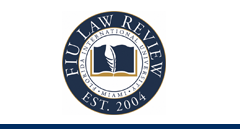Alternate Title
Evolving Privacy Protections for Emerging Machine Learning Data Under Carpenter v. United States
Keywords
Privacy law, Fourth Amendment, Technology, Artificial Intelligence, machine learning
Abstract
The Fourth Amendment’s third-party doctrine eliminates an individual’s reasonable expectation of privacy in information they willingly turn over to third parties. Government scrutiny of this information is not considered a search under the Fourth Amendment and is therefore not given constitutional protections. In the 2018 case Carpenter v. United States, the Supreme Court created an exception to the third-party doctrine. In Carpenter, a case involving the warrantless use of cell site location information (CSLI) in a criminal investigation, the Court held that individuals do have a reasonable expectation of privacy regarding CSLI. According to Chief Justice Roberts, despite the necessary relinquishment of some information by all cell phone users, privacy is guaranteed “[i]n light of the deeply revealing nature of CSLI, its depth, breadth, and comprehensive reach, and the inescapable and automatic nature of its collection….” The Court’s rational in distinguishing CSLI is also applicable to the personal data that is constantly being collected by tech companies through the use of machine learning algorithms. Companies like Facebook and Google use machine learning to specifically tailor each user’s experience to their individual preferences. To do so, machine learning algorithms constantly collect, store, and analyze data about our interactions online to “learn” about our habits, ideologies, likes, dislikes, and affiliations. Given the Carpenter Court’s understanding of the constitutional complexities of high-tech communications, this comment takes the next step to explore individuals’ reasonable expectation of privacy in algorithmic learning data titrated to their personal preferences.
Recommended Citation
Emily Nicolella, Evolving Privacy Protections for Emerging Machine Learning Data Under Carpenter v. United States, 17 FIU L. Rev. 453 (2023), https://doi.org/10.25148/lawrev.17.2.12.
Included in
Fourth Amendment Commons, Health Law and Policy Commons, Science and Technology Law Commons





